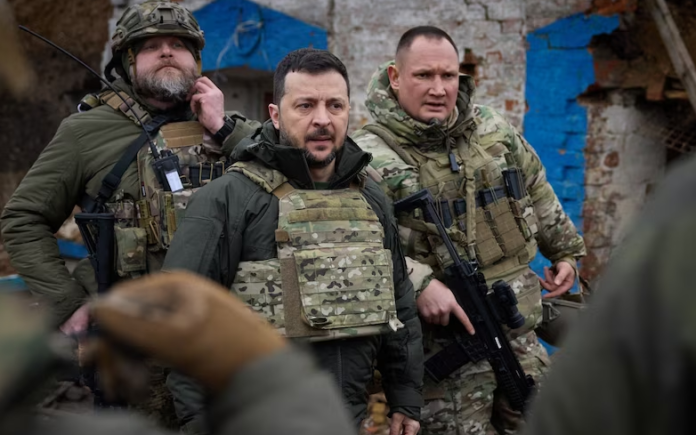Amid escalating tensions in the prolonged conflict between Ukraine and Russia, European military heavyweights Germany and Poland asserted their stance on Tuesday, declaring that they would not deploy troops to Ukraine. This decision follows reports suggesting the possibility of Western countries considering military intervention as the conflict enters its third year.
NATO’s Position:
The head of NATO affirmed that the U.S.-led military alliance has no intentions of sending troops to Ukraine, aligning with the stance of other central European leaders who also ruled out providing soldiers for deployment.
Kremlin’s Warning:
In response to speculations regarding potential NATO intervention, the Kremlin issued a stark warning, stating that direct conflict between NATO and Russia would become inevitable if combat troops were deployed. Kremlin spokesman Dmitry Peskov emphasized the seriousness of the situation, highlighting the possibility of conflict escalation.
French President’s Remarks and Clarification:
French President Emmanuel Macron’s recent comments regarding the possibility of sending Western ground troops sparked controversy. However, German Chancellor Olaf Scholz offered a different interpretation of discussions held in Paris, emphasizing a consensus among participants that ground troops from European or NATO states would not be deployed to Ukrainian soil.
Clarification from French Government:
In response to mounting criticism and concerns, the French government sought to clarify Macron’s remarks. French Defense Minister Sébastien Lecornu clarified that while discussions occurred at the conference, there was no consensus on deploying ground troops. Instead, the focus was on potential de-mining and military training operations away from the front lines in Ukraine.
Continued Diplomatic Efforts:
Despite differing stances among European leaders, diplomatic efforts persist to address the escalating crisis in Ukraine. Discussions continue among key stakeholders to explore avenues for conflict resolution and de-escalation, emphasizing the importance of maintaining stability in the region.
Regional Implications:
The ongoing conflict in Ukraine not only poses a threat to regional stability but also has broader implications for international security. As tensions heighten, neighboring countries and global powers closely monitor developments, with a keen focus on preventing further escalation and fostering dialogue to achieve a peaceful resolution.
Humanitarian Concerns:
Amidst geopolitical maneuvering and military posturing, the humanitarian situation in Ukraine remains a pressing concern. Civilians bear the brunt of the conflict, facing displacement, violence, and dire humanitarian needs. The international community continues to provide assistance and support to alleviate the suffering of those affected by the crisis.
Conclusion:
As tensions continue to simmer in the region, the differing perspectives among European leaders underscore the complexities surrounding potential military intervention in Ukraine. With France seeking to clarify its position amidst criticism, the situation remains fluid, with ongoing diplomatic efforts aimed at de-escalating the conflict while addressing security concerns in the region.
Germany and Poland Rule Out Sending Troops to Ukraine Amid Rising Tensions
The NATO alliance, led by the United States, confirms it has no immediate plans to deploy troops to Ukraine, maintaining a unified stance on the matter.



